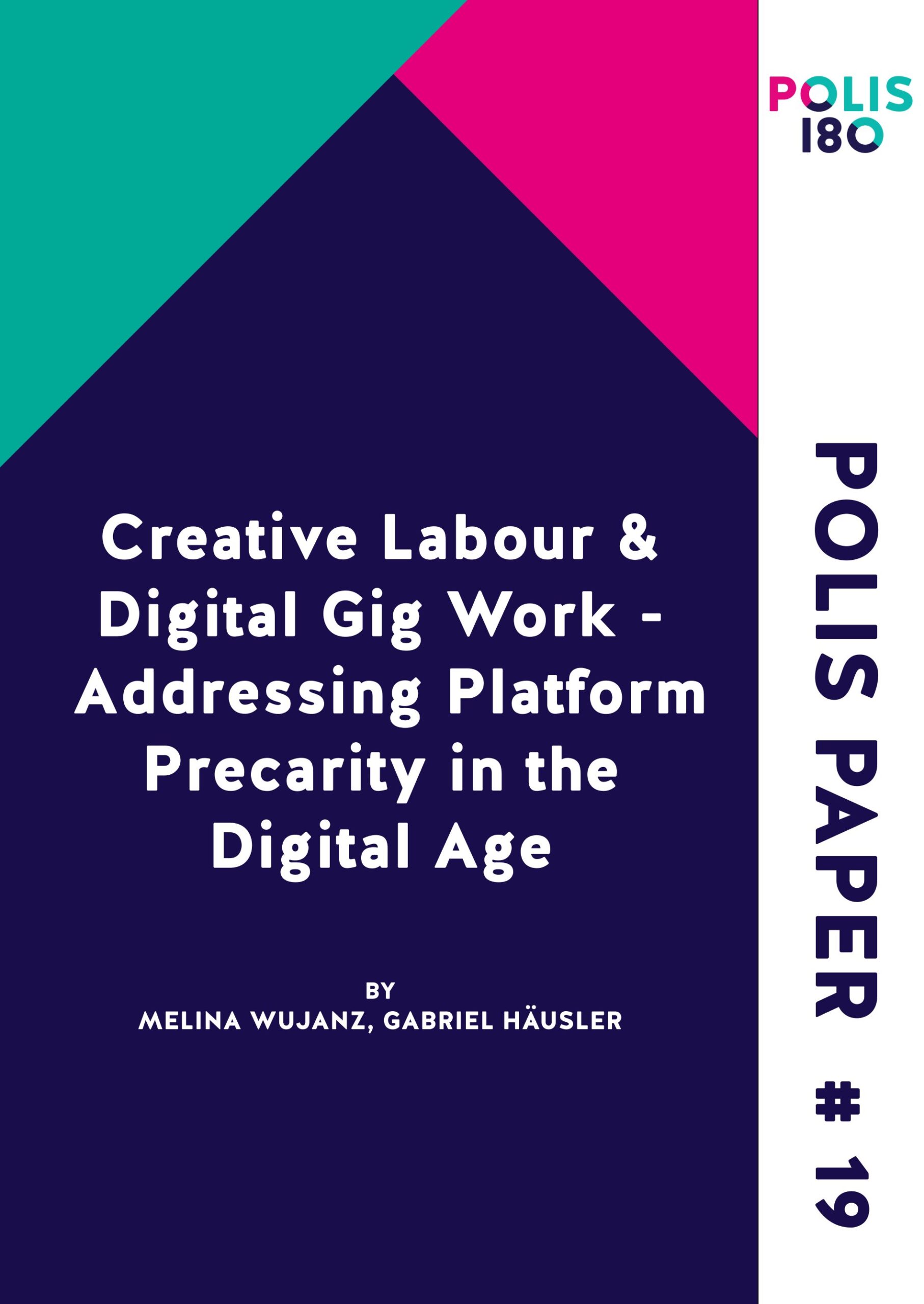This paper is part of a series of papers highlighting fields of innovation in the creative industries with political impact and how they can be supported politically.
They were created in the context of the project Digitizing Creative Industries, in which five innovation projects from Europe were supported in an accelerator program with mentoring, innovation workshops and networking.
In this series, our international authors from academia, innovation practice and journalism address the opportunities and challenges of creative value creation in the Web3 space, digital gig work in the creative sector, new forms of local journalism and its importance for a balanced media landscape in Eastern Europe, recommendations for a European policy framework to support media innovation, and cross-disciplinary collaboration using the example of educational innovation with extended reality technology.
Abstract
Digital gig work platforms have established themselves as new matchmakers of labour markets, providing infrastructure for the management of offers, communication, distribution, and payments of digitally deliverable services. Creative services specifically make for approx. 20% of gigs on these platforms, which offer workers flexibility and allow buyers to choose from a pool of globally competing offers at a fixed rate.
Simultaneously, platforms take a set percentage of the transaction cost. While this has advantages, digital gig work also creates power dynamics that can result in subordinate positions for workers, particularly in regards to labour fairness.
This policy paper aims to highlight these issues and proposes six specific policy recommendations to address labour precarity in creative digital gig work.
By Melina Wujanz & Gabriel Häusler
December 2022
Melina Wujanz studied Creative Business at the Hogeschool in Utrecht, the Netherlands. Here, she primarily focussed on market trends in creative industries and digital disruption, specifically. She has extended these insights with first professional experiences in marketing and currently works in a Berlin-based start-up.
Gabriel Häusler is passionate about internet economies, their governance and societal implications. He pursues this interest through his studies of Media Studies and Political Science, as well as first work insights into technology commerce, and his role as a board member of the initiative Europe’s Digital Future which seeks to give young Europeans a voice in Technology discourses through knowledge building, networking, and stakeholder advocacy.
